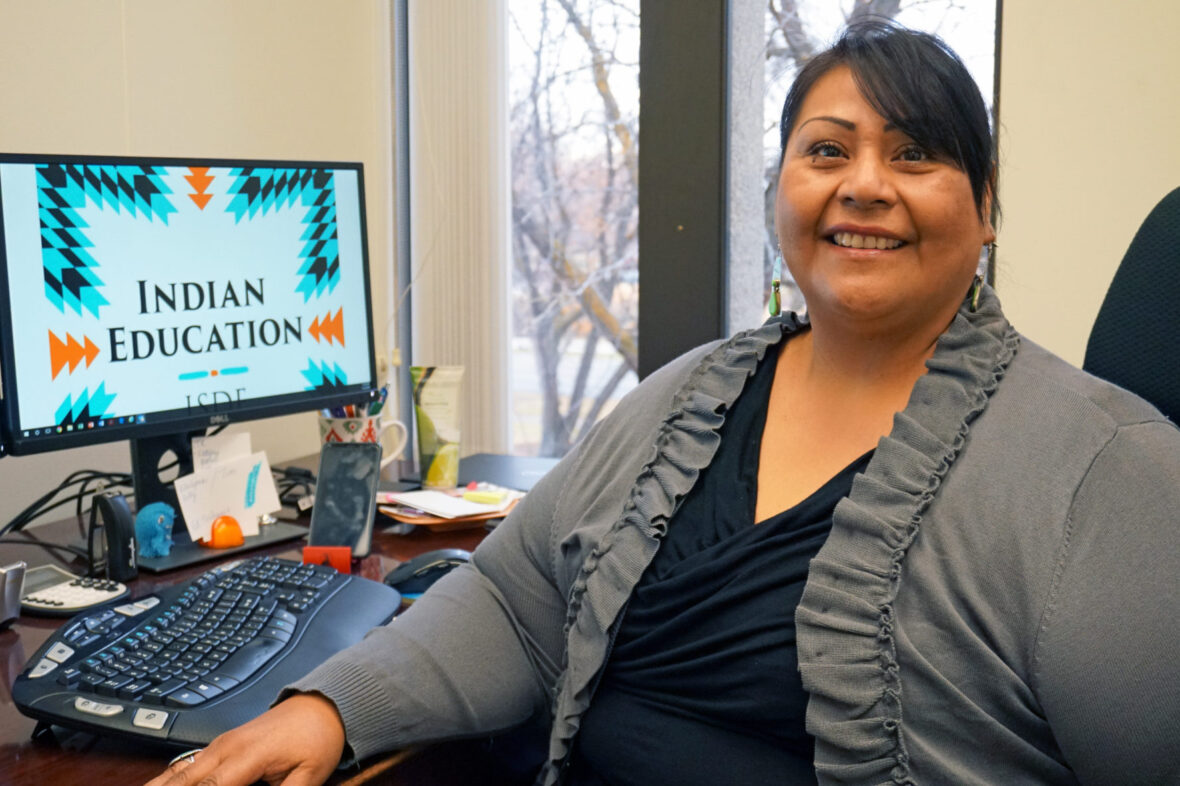
- Details
- By Carly Flandro
A group that aims to support Indigenous communities in Idaho spoke out on Tuesday about the “reprehensible … firing” of Johanna Jones, the state’s longtime Indian Education coordinator.
After spending over a decade as the state’s Indian Education coordinator, Johanna Jones is no longer with the Idaho Department of Education, EdNews confirmed Thursday. Jones departed the position on June 13, according to Transparent Idaho.
[Editor's Note: This article was first published byIdaho Education News. Used with permission. All rights reserved.]
She was one of two state staffers assigned to Indian Education; the other is Patty Sanchez, who is listed as an academic affairs program manager for the State Board of Education.
“We feel this is a targeted disgrace of a vaunted educator,” a press release from the Indigenous Idaho Alliance reads. “It does not bode well that in a time when programs that help not only Native American/Indigenous people in education, but also bridges the cultural education gap with other communities in Idaho, are under attack … that the (IDE) has moved to replace one of the most respected and staunchest supporters of Native Americans in education in the state of Idaho.”
Scott Graf, the communications director for the IDE, said state leaders decided to elevate Jones’ former coordinator position to a director position, which entails an “expansion of duties and responsibilities.” The change is “a direct result of (Superintendent Debbie Critchfield’s) interactions with tribes over the past 18 months and a desire to better serve their education needs,” Graf wrote in an email to EdNews.
The director position was advertised this spring and candidates were interviewed. “Ultimately, the process did not yield a successful hire,” Graf wrote. “The position has been re-advertised and we are actively recruiting candidates.”
When no hires were made after the initial search, state officials, stakeholders and tribal community members mutually decided to cancel the annual Indian Education summit that was planned for early August, Graf wrote. The summit aims to “(provide) educators with knowledge they can use in the classroom to help American Indian students succeed academically.”
In its press release decrying Jones’ termination, the Alliance also announced it was severing its partnership with the summit.
“We remain hopeful for the future of Idaho Indian Education,” the press release read. “We also honor the valuable contributions and commitment of the former Indian Education Coordinator, and will continue to prioritize and center the voices of tribes and Native communities.”
When — or whether — the summit will be rescheduled will depend on “the timeline on which the Director of Indian Education is hired,” Graf said, and added that the department plans to continue hosting the event in coming years.
Greg Wilson, Critchfield’s chief of staff, will serve as the interim director of Indian Education until the position is filled.
The IDE has reached out to tribes for their assistance in the search, and is also considering “the addition of a second Indian Education position in our department,” but doing so would require legislative approval, Graf said.
The shakeup in the state’s Indian Education department and programming comes as data has underlined alarming achievement gaps between the state’s tribal youth and the general population, and as tribal education leaders have called on the state to do more to support Native American students.
EdNews reached out to education leaders or spokespeople with the Nez Perce, Coeur d’Alene, and Shoshone-Bannock tribes for comment Thursday morning but had not heard back by Thursday evening. We will update this story if comments are provided.
Idaho is home to five federally-recognized tribes, which also include the Shoshone-Paiute and the Kootenai.
Help us defend tribal sovereignty.
At Native News Online, our mission is rooted in telling the stories that strengthen sovereignty and uplift Indigenous voices — not just at year’s end, but every single day.
Because of your generosity last year, we were able to keep our reporters on the ground in tribal communities, at national gatherings and in the halls of Congress — covering the issues that matter most to Indian Country: sovereignty, culture, education, health and economic opportunity.
That support sustained us through a tough year in 2025. Now, as we look to the year ahead, we need your help right now to ensure warrior journalism remains strong — reporting that defends tribal sovereignty, amplifies Native truth, and holds power accountable.
 The stakes couldn't be higher. Your support keeps Native voices heard, Native stories told and Native sovereignty defended.
The stakes couldn't be higher. Your support keeps Native voices heard, Native stories told and Native sovereignty defended.
Stand with Warrior Journalism today.
Levi Rickert (Potawatomi), Editor & Publisher

